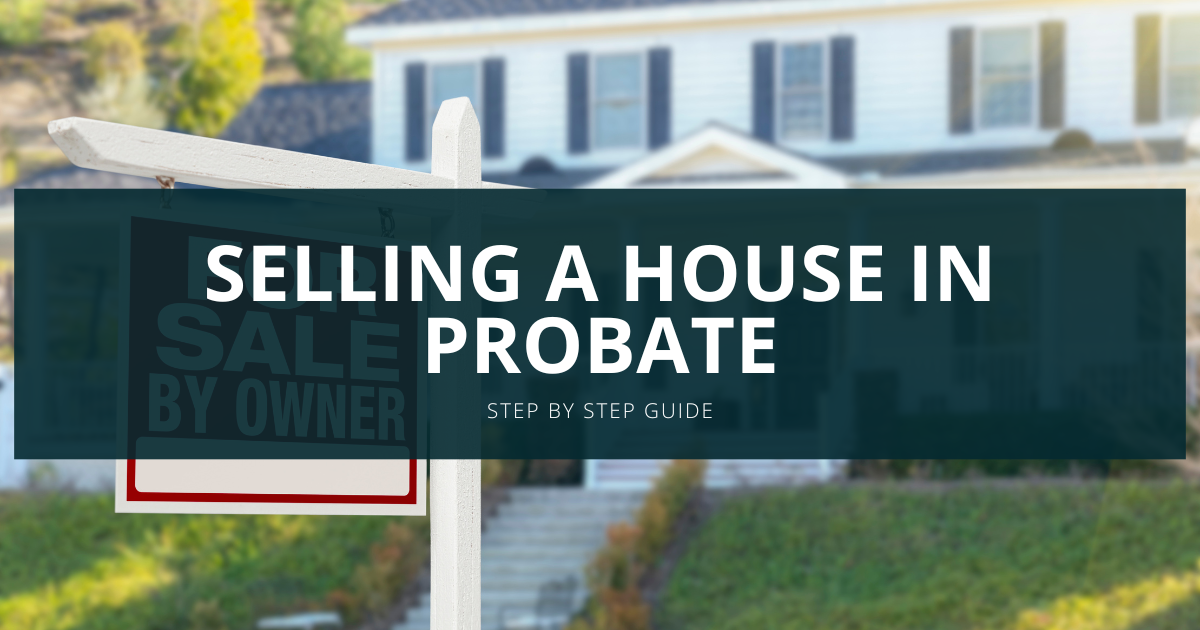This guide, written by a California probate attorney, explains the step-by-step process for selling a house in probate in San Diego, from filing the first petition to closing escrow. You’ll learn how probate sales differ from trust sales, when court confirmation is required, how to work with a probate referee and real estate professionals, what fees to expect, and how long the process usually takes.
When a loved one passes away, the process of selling a house in San Diego probate can feel overwhelming. Probate is a court-supervised system designed to protect heirs, creditors, and buyers, but it can also add complexity, time, and cost to selling real estate.
Our goal is to help San Diego families understand what to expect—and how to avoid unnecessary delays or expenses when selling a home in probate.
What Is Probate and How Does It Affect Selling a House in San Diego Probate?
Probate is the legal process for settling a deceased person’s estate, which includes validating a will, paying debts and taxes, and distributing property to heirs. When real estate is involved, probate ensures marketable title is passed to the buyer.
In California, and specifically in San Diego County, probate sales may require court oversight unless the personal representative has been granted full authority under the Independent Administration of Estates Act (IAEA). This distinction—full vs. limited authority—is one of the most important factors in determining how quickly and efficiently a house can be sold.
Probate vs. Trust Sales in San Diego
Both probate and trust sales transfer real estate, but the process is very different:
- Probate Sales – Require court appointment of a personal representative and may involve court confirmation, overbidding, and strict statutory procedures.
- Trust Sales – If property was placed into a properly funded revocable living trust, the trustee can sell the home without probate court involvement. This often results in faster sales and fewer expenses, though the trustee still has fiduciary duties and must handle creditor claims.
Tip: Many San Diego families choose to create a revocable living trust to avoid probate and simplify future home sales.
Who Are the Executors and Personal Representatives?
In California probate, the court appoints a personal representative to manage the estate. This is the legal term used to describe the individual responsible for gathering the estate’s assets, paying debts and taxes, and ultimately distributing property to heirs or beneficiaries.
There are two main types of personal representatives:
- Executor – If named in the will.
- Administrator – If no will exists, or if the named executor cannot serve.
Both executors and administrators are considered personal representatives under California Probate Code, and they have the same fiduciary responsibilities to act in the best interest of the estate and its beneficiaries.
Once appointed, the personal representative receives Letters Testamentary (if there’s a will) or Letters of Administration (if there isn’t). These official documents give the personal representative authority to act—pay debts, hire professionals, and sell real estate, subject to the level of IAEA authority granted.
San Diego Practice Note: Title companies and buyers will require certified copies of Letters before proceeding with any real estate transaction.
Where to Start When Selling a House in San Diego Probate?
The process begins by filing a Petition for Probate with the San Diego County Superior Court (Probate Division, located at the Central Courthouse in downtown San Diego).
Steps include:
- Gather documents – Original will (if any) and death certificate. See Note 1
- Complete court forms – Such as Petition for Probate (DE-111), Duties and Liabilities of Personal Representative (DE-147), and Notice of Petition to Administer Estate (DE-121).
- File with the Probate Clerk – Pay the filing fee (check the San Diego Superior Court’s current probate fee schedule).
- Notify heirs and creditors – Serve notice of hearing to heirs and devisees, publish notice in an adjudicated San Diego newspaper, and send notice to known creditors.
- Attend hearing – The court will appoint the personal representative.
- Obtain Letters – After the hearing, the court issues Letters, giving the representative legal authority to act.
Note 1: Under California Probate Code § 8200, anyone in possession of a decedent’s will must lodge it with the clerk of the superior court in the county where the decedent resided within 30 days of learning of the death.
Important: Creditors have four months from the issuance of Letters, or 60 days from notice—whichever is later—to file claims. The Personal Representative must account for this timeline when planning distributions.
How Does the Independent Administration of Estates Act (IAEA) Affect the Sale?
The Independent Administration of Estates Act (IAEA) determines whether a San Diego probate home sale must go through a court confirmation hearing.
- Full IAEA Authority – The personal representative can sell property without court confirmation. Instead, they serve a Notice of Proposed Action (NOPA) on heirs at least 15 days before the sale. If no one objects, escrow can close without a hearing. This often saves 3–6 months compared to court-confirmed sales.
- Limited IAEA Authority – A court confirmation hearing is required. The court must approve the sale, ensure the price is at least 90% of the appraised value, and allow overbids.
Example: If a San Diego probate referee values a home at $750,000, the court cannot confirm a sale below $675,000 (90% rule).
Tip: When possible, request full IAEA authority at the initial petition stage. It can shorten the process and reduce costs.
How Should You Prepare a Probate Property for Sale?
Homes sold through probate are often older or in need of maintenance. While real estate may be sold “as-is,” basic preparation can increase buyer interest and improve net proceeds.
Recommended steps:
- Walkthrough & Repairs: Identify safety issues (roof leaks, plumbing, electrical) and address those that offer the highest return.
- Cleaning & Staging: Even modest staging—fresh paint, decluttering—can help buyers visualize potential.
- Disclosures: Probate sales are generally exempt from the Transfer Disclosure Statement (TDS) under Civil Code §1102.2(d). However, the listing agent must still perform a visual inspection (Civ. Code §2079), and the estate must disclose any known material defects. For residential property (1–4 units), the Natural Hazard Disclosure (NHD) report must still be provided.
San Diego Probate Note: Local buyers and investors often expect probate properties to be listed “as-is,” but small cosmetic improvements can significantly boost offers.
How Are Probate Properties Appraised in California?
The court appoints a probate referee to determine the property’s fair market value. The referee issues a written appraisal, which is:
- Used to establish the minimum sale price if court confirmation is required.
- Recognized by the San Diego Superior Court and relied upon for statutory fee calculations.
- Based on comparable sales and inspection, ensuring impartiality.
Example: For a $1 million property, the probate referee’s fee is 0.1% of the appraised value ($1,000), plus small expenses (Gov. Code §8963).
How Are Probate Properties Marketed and Sold “As-Is”?
Once appraised and prepared, the property can be listed for sale:
- With Full Authority: Market the home like a traditional sale—list on MLS, accept offers, and close escrow after serving a NOPA (if no objections).
- With Limited Authority: Publish a Notice of Sale in an adjudicated San Diego newspaper before accepting an offer. The listing must state that the sale is subject to court confirmation and overbidding.
Marketing strategies include:
- Pricing slightly below market to attract investors.
- Highlighting renovation or investment potential.
- Targeting both owner-occupants and cash buyers familiar with probate rules.
Tip: Hiring a Certified Probate Real Estate Specialist (CPRES) in San Diego can streamline marketing, avoid mistakes, and ensure compliance with court requirements.
How Do Offers and Court Confirmation Work in a Probate Sale of Real Estate in San Diego?
Once the property is listed, buyers make written offers with proof of funds or lender preapproval. How those offers are handled depends on the personal representative’s authority:
- Full IAEA Authority: The personal representative accepts an offer, then serves a Notice of Proposed Action (NOPA) on heirs and other interested parties. If no one objects within 15 days, the sale may close without a hearing.
- Limited IAEA Authority: The personal representative must petition the court for a confirmation hearing. Only after the judge approves the sale can escrow close.
What Happens at a San Diego Probate Court Confirmation Hearing?
If a hearing is required, here’s what typically happens at the San Diego Superior Court (Probate Division):
- The personal representative files a petition to confirm the sale, attaching the accepted offer and probate referee appraisal.
- The court calendar includes the petition, and Probate Examiner Notes may list additional requirements (e.g., proof of publication, deposits).
- At the hearing, the judge reviews the documents and opens the property to overbidding.
- If approved, the judge signs an order confirming the sale, which authorizes escrow and title transfer.
Timeline impact: Court confirmation hearings often add 3–6 months to the process, depending on court backlog.
How Does the Overbidding Process Work?
Overbidding ensures the estate receives fair market value. California law sets the minimum overbid formula:
- 10% of the first $10,000 of the accepted offer, plus
- 5% of the balance of the offer price.
Example: If the accepted offer is $700,000, the first overbid must be at least $735,500 ($700,000 + $1,000 + $34,500).
San Diego courts may also require bid deposits (often 10% of the bid price) and specific forms, so working with a local probate-savvy real estate agent and attorney is crucial.
What Is a Notice of Proposed Action (NOPA)?
With full IAEA authority, personal representatives can avoid court confirmation by serving a Notice of Proposed Action (Judicial Council form DE-165).
- Must be served 15 days before the sale.
- Sent to heirs, devisees, those who requested special notice, and the Attorney General if required.
- If no one objects, escrow may close.
- If objections are raised, court approval becomes necessary.
Tip: Always track the service date carefully—failure to give proper notice can delay the sale.
How Is a Probate Sale Closed?
After court confirmation (or after the NOPA period passes without objection), the personal representative:
- Opens escrow with a San Diego title company.
- Executes a Personal Representative’s Deed.
- Records the deed with the San Diego County Recorder.
- Deposits sale proceeds into the estate account.
- Pays court-approved expenses, debts, and fees.
- Distributes remaining funds to heirs according to the will or intestacy laws.
What Fees and Costs Should Personal Representatives Expect When Selling a House in San Diego Probate?
Selling real estate in probate involves both court-mandated fees and professional costs:
| Fee Type | Amount / Formula | Notes |
|---|---|---|
| Court Filing Fees | ~$450 per petition + additional filing fees | See San Diego Superior Court probate fee schedule for exact amounts |
| Probate Referee Fees | 0.1% of appraised value + expenses (e.g., $900 on a $900,000 home) | Based on property appraisal; set by Gov. Code §8963 |
| Attorney Fees (Prob. Code §10810) | – 4% of first $100,000 – 3% of next $100,000 – 2% of next $800,000 – 1% of next $9M | Statutory “ordinary” fees; extraordinary fees may also apply |
| Executor (Personal Rep.) Fees | Same statutory formula as attorney fees | Often waived by family Personal Representatives |
| Real Estate Commissions | 5–6% of sale price | Must be approved by the court if confirmation is required |
| Other Costs | Publication fees, escrow and title costs, possible extraordinary legal fees | Applies if litigation or tax issues arise |
Planning Tip: These fees are paid from the estate, not the personal representative’s personal funds. Setting expectations with heirs early prevents disputes later.
Estimated Probate Costs for Selling a $1 Million Estate in California
When an estate includes a $900,000 home and $100,000 in other assets, here’s how typical probate fees and costs are calculated under California law.
| Fee Type | Amount / Formula | Example on $1 Million Estate | Notes |
|---|---|---|---|
| Court Filing Fees | ~$450 per petition + additional filing fees | ~$450–$600 | Varies by county; San Diego Superior Court has its own fee schedule |
| Probate Referee Fees | 0.1% of appraised value + expenses | ~$900 (on $900,000 home) | Appraiser sets value; small admin expenses may apply |
| Attorney Fees (Prob. Code §10810) | – 4% of first $100,000 – 3% of next $100,000 – 2% of next $800,000 – 1% of next $9M | $23,000 | Ordinary statutory fee only; extraordinary fees may be requested |
| Executor (Personal Rep.) Fees | Same statutory formula as attorney fees | $23,000 (if not waived) | Often waived by family personal representatives/executors |
| Real Estate Commissions | 5–6% of sale price | $45,000–$54,000 (on $900,000) | Must be court-approved if sale requires confirmation |
| Other Costs | Publication fees, escrow/title costs, extraordinary legal fees | $2,000–$5,000+ | Varies depending on litigation, disputes, or tax complexity |
Total Estimated Costs (before extraordinary fees):
With executor fee waived: ~$71,000–$82,000
With executor fee taken: ~$94,000–$105,000
Note: These figures are estimates based on California’s statutory fee schedule and typical market rates. Actual costs may vary depending on the county (e.g., San Diego Superior Court fees), the complexity of the estate, creditor claims, and whether extraordinary attorney or executor fees apply.
How Do Taxes Affect Selling a House in San Diego Probate?
One of the biggest financial questions in probate sales is taxes. The good news is that most heirs benefit from the step-up in basis rule:
- At death, the property’s tax basis is adjusted to its fair market value on the date of death (or alternate valuation date, if elected).
- If the home is sold soon after death for close to the appraised value, little or no capital gains tax may be owed.
- If the property appreciates significantly before being sold, capital gains tax could apply to that increase.
Example: A San Diego home purchased decades ago for $150,000 is worth $900,000 on the date of death. The new basis is $900,000. If it sells for $910,000 shortly after, capital gains would apply only to the $10,000 increase.
Tip: Always consult a CPA or tax attorney before distributing sale proceeds to ensure compliance with both federal and California tax rules.
How Are Mortgages and Debts Handled in Probate?
In California, most probate estates, particularly in San Diego, where real estate is a significant asset, include homes with existing mortgages or other secured debts. Under the Independent Administration of Estates Act (IAEA), the personal representative (executor or administrator) must ensure these obligations are properly managed before heirs can receive their inheritance. Handling mortgages and debts involves several moving parts:
Mortgages on Probate Property
Paying Off Through Escrow: If the estate sells real property, the outstanding mortgage balance is generally paid directly out of escrow at closing. The lender is treated as a secured creditor, and its lien must be satisfied before clear title can pass to a buyer.
Assumption or Refinance Options: In limited cases, beneficiaries may wish to keep the property. If so, they may assume the mortgage (if permitted by the loan terms or federal law such as the Garn–St. Germain Act) or refinance into their own name. The personal representatives should coordinate early with the lender to confirm available options.
Due-on-Sale Clauses: While federal law limits enforcement in certain transfers to heirs, some transactions—particularly sales to third parties—can trigger the lender’s right to call the loan due. Early communication with the lender is essential to avoid delays or last-minute issues in escrow.
Liens and Judgments on Probate Property
Settlement at Sale: Tax liens, mechanics’ liens, and recorded judgments typically must be cleared before a sale can close. These are resolved through escrow using sale proceeds.
Negotiation or Release: In some cases, the personal representative may negotiate with creditors to accept reduced payoffs, particularly where the property value is insufficient to cover all debts.
Title Review: Personal representatives should obtain a preliminary title report early in the process to identify liens and encumbrances that might affect marketability of the property.
Unsecured Debts and Creditor Claims When Selling a House in San Diego Probate
Notice to Creditors: The personal representative is required to provide statutory notice to known creditors and publish a notice to creditors in a newspaper of general circulation (Probate Code §§ 9050–9054).
Creditor Claim Period: Creditors must file claims within the statutory deadlines—generally the later of four months after the issuance of Letters or 60 days after actual notice (Probate Code §§ 9100–9103).
Allowance or Rejection of Claims: The personal representative reviews claims and either allows or rejects them. Rejected creditors may then pursue court action to enforce their claims.
Priority of Payment: California Probate Code §§ 11420–11429 establish the order of priority for debt payments. Secured debts and administration expenses are paid first, followed by funeral expenses, taxes, and general unsecured claims.
Restrictions on Distribution
No final distribution of the estate may occur until valid debts and claims are resolved. This ensures that creditors’ rights are protected and prevents beneficiaries from being forced to return funds later to cover unpaid obligations. The court will review the handling of debts during the personal representative’s final accounting, unless waived.
Key Takeaway for Personal Representatives in San Diego
Managing mortgages and debts is one of the most critical aspects of probate. By addressing lender communications early, clearing liens through escrow, and properly handling creditor claims within statutory deadlines, personal representatives can avoid costly delays and protect themselves from liability. Beneficiaries should also understand that mortgage payoffs and creditor settlements will reduce the net estate available for distribution.
How Can Heirs’ Disputes Be Resolved When Selling a House in San Diego Probate?
It’s not uncommon for family members to disagree about selling a home—whether on price, timing, or distribution of proceeds. Options for resolving disputes include:
- Mediation – A neutral third party helps heirs reach an agreement.
- Court Intervention – If disputes escalate, the probate judge will decide.
- Transparency – Personal representatives who provide regular updates, copies of appraisals, and clear accountings often prevent conflicts before they start.
Practical Tip: Mediation is almost always faster and less expensive than litigation. Personal representatives should use it proactively when conflicts arise.
How Can Probate Be Avoided for Real Estate in California?
The most effective way to simplify future real estate transfers is through proactive estate planning. By using legally recognized probate-avoidance tools, a property owner can ensure that their home or other real estate passes directly to chosen beneficiaries without the delays, costs, and publicity of probate. Below are the most common methods in California:
Revocable Living Trusts
A revocable living trust is the gold standard in California for avoiding probate. When real property is titled in the name of the trust, the successor trustee has legal authority to manage or transfer the property upon the owner’s death, without court involvement.
Trusts allow flexibility: the owner can amend or revoke the trust during life.
Successor trustees can sell or distribute property quickly, often within weeks of the death, depending on other estate complexities.
A trust also provides for incapacity planning, enabling a successor trustee to act if the owner becomes incapacitated.
California Probate Code §§ 15200–15212
Transfer on Death (TOD) Deeds
California law permits the use of Revocable Transfer on Death (TOD) Deeds, sometimes referred to as “beneficiary deeds.” A California TOD deed allows a homeowner to name one or more beneficiaries who will inherit the property automatically upon the owner’s death, bypassing probate.
The deed must be executed, notarized, and recorded with the county recorder before the owner’s death.
Owners may revoke or change the TOD deed at any time during life.
As of AB 139 (effective Jan. 1, 2022 – Jan. 1, 2032), TOD deeds in California have been expanded to cover more properties (including multi-parcel holdings and some revocable transfers subject to liens) and require stricter witnessing formalities.
TOD deeds are simple and inexpensive, but they do not provide the same level of flexibility, creditor protection, or planning benefits as a trust.
California Probate Code §§ 5600–5696
Joint Tenancy with Right of Survivorship
When two or more people hold title as joint tenants with right of survivorship, the surviving owner(s) automatically inherit the deceased owner’s share. This avoids probate for the first death, though probate may still be required when the last joint tenant passes.
Common between married couples.
The property passes by operation of law but may create issues if one joint tenant becomes incapacitated or if an owner wants to transfer their share during life.
This method does not replace comprehensive planning, especially for blended families or when unequal contributions were made to the purchase of the property.
California Civil Code § 683
Community Property with Right of Survivorship
Married couples and registered domestic partners in California may also hold title as community property with right of survivorship. Like joint tenancy, the surviving spouse automatically inherits the property, but with added tax advantages.
The surviving spouse receives a full step-up in basis for capital gains purposes under IRC § 1014(b)(6).
This is often a preferred titling method for married couples who do not use a trust.
California Civil Code § 682.1
Beneficiary Designations on Financial Accounts
While not directly related to real estate, beneficiary designations on retirement accounts, life insurance, and bank accounts allow those assets to pass outside of probate. Coordinating beneficiary designations with a living trust ensures consistency in the overall estate plan.
Selling a House in San Diego Probate Tip
While California now offers multiple tools to avoid probate for real estate, a revocable living trust remains the most flexible, reliable, and comprehensive option. Unlike a TOD deed or joint tenancy, a trust can manage contingencies (such as what happens if a beneficiary predeceases you), address incapacity, and coordinate with other assets in your estate.
Probate-Avoidance Tools for Real Estate in California
| Tool | How It Works | Pros | Cons | Best For |
|---|---|---|---|---|
| Revocable Living Trust | Property is titled in the trust; successor trustee manages or transfers at death. | Comprehensive planning; avoids probate; flexible; covers incapacity; allows detailed beneficiary provisions. | Requires setup cost and ongoing maintenance; must properly transfer property into trust. | Families who want full control, flexibility, and coordinated estate planning. |
| Revocable Transfer on Death (TOD) Deed | Owner records a deed naming a beneficiary who inherits automatically at death. | Simple and inexpensive; avoids probate; revocable during life. | Limited flexibility; no incapacity planning; may expose property to beneficiary’s creditors; expires Jan. 1, 2032 (unless renewed). | Homeowners with modest estates seeking a simple probate-avoidance tool. |
| Joint Tenancy with Right of Survivorship | Surviving joint tenant(s) automatically inherit deceased’s share. | Simple; automatic transfer; avoids probate on first death. | May cause disputes in blended families; surviving joint tenant controls property; probate required after last owner’s death. | Couples or co-owners wanting straightforward survivorship rights. |
| Community Property with Right of Survivorship | Married couples or domestic partners hold property as community property with survivorship. | Avoids probate on first death; full step-up in basis for tax purposes. | Only available to spouses/partners; still requires probate after survivor’s death unless held in a trust. | Married couples who want tax efficiency and simple probate avoidance. |
| Beneficiary Designations (on accounts) | Assets like retirement accounts, life insurance, and bank accounts transfer directly to named beneficiaries. | Avoids probate; simple and low cost. | Not applicable to real estate; may conflict with trust plan if not coordinated. | Coordinating liquid assets with an estate plan. |
How Long Does It Take to Sell a House in Probate in San Diego?
The timeline for selling a probate property in San Diego varies widely. On average:
Phase | Duration | Key Action |
Petition & Appointment | 1–2 months | File petition, appoint executor/Personal Rep. |
Appraisal & Preparation | 1–3 months | Probate referee appraisal, property cleanup |
Marketing & Offer Submission | 2–4 months | List property, receive offers |
Court Confirmation & Closing | 2–4 months | Hearing, overbids, escrow |
Total: 6–18 months is typical, though complex estates or contested cases can extend beyond two years.
Time-Saver: Requesting full IAEA authority at the start can reduce the process by several months, since many steps can be completed without court confirmation.
FAQs: Selling a House in Probate in California
To sell a house in probate, the executor or administrator must first be appointed by the court. Once appointed, they can list the home for sale, but the sale must follow California probate rules, which often include court approval and notice to heirs and creditors.
The 6 typical steps are:
Open probate and appoint an executor or administrator.
Have the property appraised.
List the home for sale with a probate-experienced realtor.
Accept an offer (subject to court confirmation in many cases).
Petition the court for approval of the sale.
Complete the sale after court confirmation and overbid process if required.
Yes, in most cases the court must approve the sale. California probate sales often require a court hearing to confirm the accepted offer, though in some cases (if the personal representative has “full authority” under the Independent Administration of Estates Act), court approval may not be required.
Generally, no. You cannot sell the house until the court officially opens probate and appoints an executor or administrator. However, once appointed, that person can petition the court to approve a sale before probate is fully completed.
The timeline varies but usually takes 9–18 months. A house can often be listed within a few months after the executor is appointed, but court approval and closing add time.
If you inherit property that must go through probate, the executor or administrator manages the sale. The proceeds are used to pay debts, taxes, and expenses, with the remainder distributed to heirs.
Only the court-appointed executor (if there’s a will) or administrator (if no will exists) has legal authority to sell probate real estate. Beneficiaries themselves cannot sell the house directly.
Yes. Heirs can make an offer to purchase the home just like outside buyers. If the sale requires court approval, they may also participate in the court’s overbid process.
The property must be appraised by a probate referee, and the sale price must typically be at least 90% of the appraised value. Court confirmation ensures the sale is fair to creditors and heirs.
Not always. Overbids are common when the court must confirm the sale. However, if the executor has full authority under the Independent Administration of Estates Act, the sale may proceed without an overbid process.
Yes. A house with a mortgage can be sold during probate in California. The mortgage balance is paid off through escrow at closing, with any remaining proceeds distributed to the estate after court costs, fees, and other debts are settled
When probate property is sold, the lender is paid directly from the sale proceeds. The escrow company obtains a payoff demand from the mortgage holder, ensuring the loan is satisfied before distributing funds to the estate.
If a beneficiary cannot refinance the mortgage, the property may need to be sold during probate. Mortgage lenders typically require the loan to be paid in full upon transfer of ownership. If the beneficiary cannot assume or refinance the loan, the personal representative can sell the home, use the sale proceeds to pay off the mortgage, and then distribute any remaining funds to the heirs according to the probate court’s orders.
In Conclusion
By following this step-by-step guide—understanding probate’s fundamentals, initiating the sale correctly, valuing and marketing the property, securing offers and confirmation, managing financial and legal details, exploring probate avoidance, and setting realistic timelines—personal representatives can fulfill their duties effectively and honor the decedent’s legacy.







